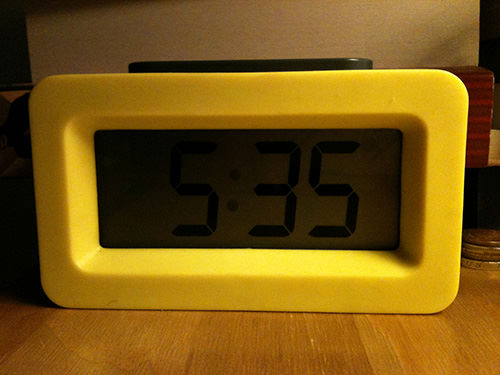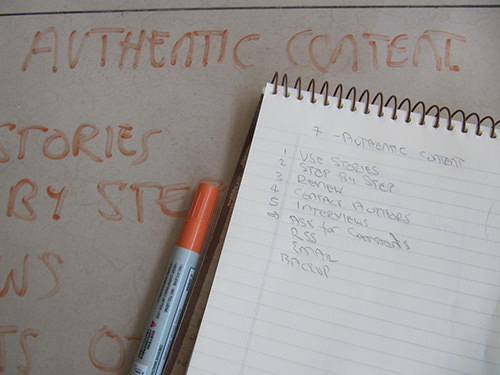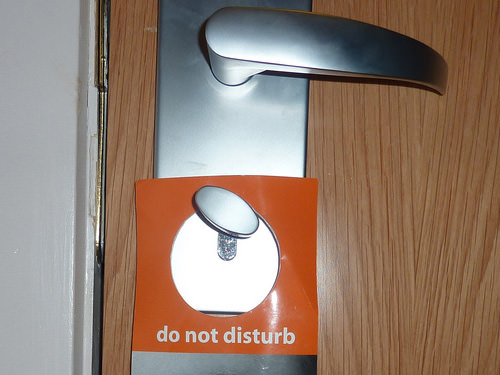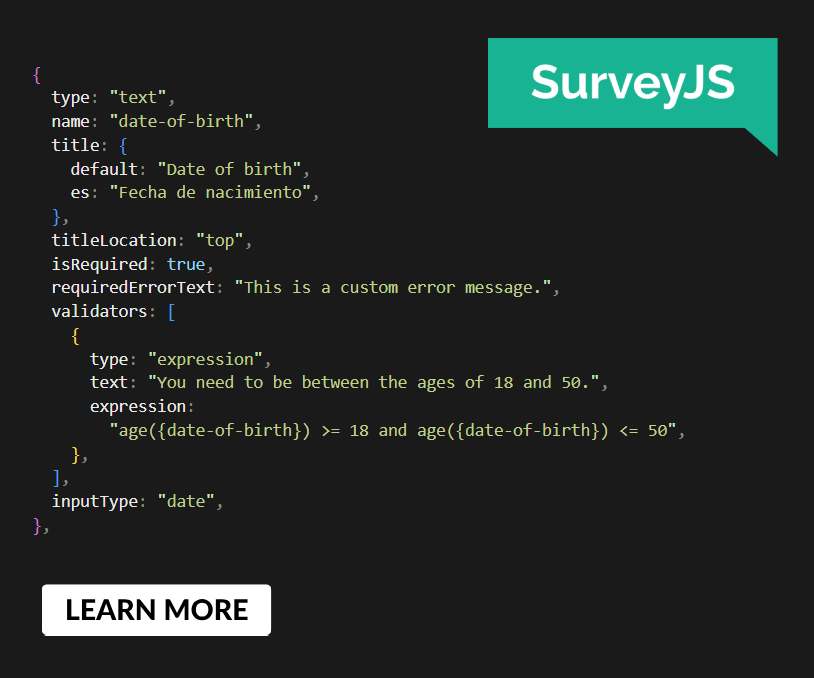Getting Work Done Without Working More Hours
The past few months have been challenging for me. I have taken on a host of new responsibilities at work and juggling that added workload has proven to be difficult.
Like many web professionals, my first instinct was to work longer hours – to come in to the office early, stay late, and to give up some of my weekend time. While this certainly helped me get more work done, I quickly realized it was not something I could sustain without eventually burning out. I knew that if this was going to work, I had to find a way to be more productive within the hours I had available to me.
While the practices covered in this article worked for me as a web designer/developer, they are also general enough that they can easily be applied to other professions as well.
Getting Work Done - Timing Is Everything
Much has been written about the productivity habits of Benjamin Franklin, including the daily schedule he adhered to. That schedule established a routine that worked for him. A good first step to increasing your productivity is to create a similar routine of your own that coincides with when you are at your best each day.
In an ask me anything (AMA) on Reddit, behavioral scientist Dan Ariely described “the two most productive hours” saying:
“Generally, people are most productive in the morning. The two hours after becoming fully awake are likely to be the best.”
I am a morning person, so this advice rings true for me. As I sought to become more productive, I began to wake up each day at 5am, well before the rest of my household. These distraction-free hours offered me the perfect opportunity to get in some writing work at a time when I was especially productive. Once I made this a part of my normal morning routine, I realized that in just a few morning’s time I could accomplish what would have normally taken me twice as long to do when working nights or weekends when I am less productive.

Not everyone is at their best in the early morning hours, however. A study by biologist Christopher Randler found that about 50% of a person’s chronotype (the propensity for an individual to sleep at a particular time during a 24-hour period) is due to genetics. While people can be trained to alter these chronotypes somewhat, there is undeniable value in embracing what naturally works for you. This means that if you are more of a night owl than an early bird, you are likely better off adjusting your schedule to coincide with the hours that are most productive for you rather than trying to change those natural rhythms.
You probably have a pretty good sense of whether you are a morning or night person, but you can determine exactly which hours are your most productive by using resources like RescueTime, which “helps you understand your daily habits so you can focus and be more productive,” or OmniContext Personal Analytics.
Have A Plan
The value in a schedule like the one Benjamin Franklin used is that it establishes a routine while still being extremely flexible in terms of what work is being done. At some point, however, you need to have a plan that is more detailed. This is where a to-do list can be invaluable.
Every night before I leave the office, I come up with a plan and establish priorities for the next day. This becomes my to-do list. By creating this list at the end of my day, I am able to hit the ground running when I get in the next morning. The author of Never Check Email In the Morning, Julie Morgenstern, endorses this idea of the nightly to-do list, saying:
"If you're waiting until the morning of to organize your day, it's too late; the day is already crashing down upon you."
For some, creating a daily to do list may seem like an amateurish task, but once I began doing it routinely, I realized how much more productive I was with that list. Without it, I found that I would often attack whatever task was thrown at me first rather than addressing what was actually most important.
I am pretty low-tech when it comes to my own to-do lists – I write them out on paper. I prefer doing my lists this way because I find that the act of physically writing helps me to really think through the possibilities and tasks ahead of me. If you want to take a more high-tech approach to your to-do list, there are a number of apps and tools available to use.

In addition to clear priorities in front of you each morning, having a list available also makes it easy to move from a completed task to whatever is next in those priorities. This benefit alone saved me valuable time in my day, helping me be more productive and keeping me away from distractions. On the topic of distractions…
Concerning Email
Ask any group of people what the single biggest distraction in their workday is and you are sure to hear email given as a popular answer. This was absolutely the case for me. Incoming email messages often distract me from my work because I feel like I need to reply to those messages immediately. In my efforts to become more productive, I knew that I had to change the way I dealt with email.
Today, my email schedule looks like this. When I get into the office around 9am, I check and answer messages. Once the clock hits 10, I close my email for solid two hours. This allows me to focus on other tasks without getting interrupted and distracted by email messages. I check my emails again at noon and address anything that needs my attention. Between 3pm and 5pm, my email is off once again, giving me another two hours of uninterrupted work time before checking messages one final time prior to leaving the office at 6pm-ish.
With this schedule, I have found myself able to really focus on specific tasks instead of attempting to handle emails or other issues that arise from those emails. It’s probably not a surprise to say that those email-free hours are easily my most productive of all the hours I am in the office.
Another option to avoid distraction from emails or other online sources is to turn off Wi-Fi for a select period of time each day. Even if your work requires you to normally use the internet, working offline for even a short stretch of time can have noticeable productivity benefits.
If turning off Wi-Fi or shutting down email is not an option for you, then finding ways to more effectively manage email may be your best bet. Two apps that others in my own organization experimented with were Mailbox and Acompli. Mailbox had some nice automation features, but Acompli supported more platforms and was therefore a better fit for our company. In the end, however, neither of these apps increased overall productivity as much as actually stepping away from email for a span of time did.
If you follow no other tips in this article, I suggest you try to close your email for at least a few hours a day or at least improve your email habits. I guarantee you will see productivity results immediately with this practice.
Tell Others What You Are Doing
Emails are obviously not the only distractions in the workplace. People walking into your office to ask a question or have a conversation can be equally as distracting. This is why, in addition to turning off my email for four hours a day, I also made my co-workers aware of what I was trying to accomplish with my distraction-free hours.
If you are going to work on your productivity and try to free yourself from distractions, you need to make sure that others in your organization are also aware of your plans. An added benefit of telling others what you are doing with your productivity improvements is that some of those co-workers may even decide to adopt this distraction-free time in their own schedules, increasing productivity for them as well.

Get Some Help
One of the most obvious, yet often under-utilized ways of increasing productivity is to get yourself some help. There is no need to be a hero and do it all yourself, yet that is the road that many web professionals take.
Seth Godin’s “productivity pyramid” includes a number of helpful points, including “people working together can get more done, faster.”
Getting help may mean hiring a new person at your company or bringing in an intern for a while – a practice that can get you some assistance and give someone new to the industry some much needed experience at the same time.
If your company is not in the position to bring on new staff or interns, then getting help may simply mean delegating some of your responsibilities to others in your organization. Often there may be tasks which have been assigned to you, but which could easily be done by someone else. This is exactly what happened to me after being charged with organizing my company’s summer outing. This responsibility fell in my lap, but with everything else I had on my plate, I just didn’t have time to commit to this event’s planning. By speaking up and asking for help, that task was quickly moved to someone else. I freed up some time and our company had a great summer BBQ!
Do not be afraid to let people know that you need a hand. Knowing when you are at your limit is not a sign of weakness or incompetence. On the contrary, a good manager will appreciate your honest assessment of what you can and cannot accomplish. For tips on how to speak to your boss, see Paul Boag’s “How To Persuade Your Users, Boss or Clients.”
Maintain Focus Amid Boredom
One of the most challenging barriers to remaining productive is doing so when the work you are doing, while necessary, is boring. Routine tasks that should be handled quickly can stretch on and on if you are not focused on them. This can kill your overall productivity.
Author James Clear writes about “behavioral psychology, habit formation, and performance improvement.” In his article “How to Stay Focused When You Get Bored Working Towards Your Goals” he talks about the issue of “mental endurance.” He recounts a conversation where he asked a trainer what the difference was between elite athletes and everyone else. One of the things that trainer said was:
“At some point it comes down to who can handle the boredom of training every day and doing the same lifts over and over and over again.”
There is an important productivity lesson here. It is easy to get excited by a cool project and be motivated to do your best work, but what about when you are doing routine tasks? I tackled the challenge of maintaining focus during these periods by setting time limits for how long certain things should take me. Having a timer for mundane tasks kept me focused on beating the clock, which ultimately kept me focused even during the most boring of tasks. By turning the situation into a contest, I found that I was faster and more productive as whole – and, quite frankly, it was fun to do. Anytime you can increase productivity and have some fun in the process, that is a win-win!
Break Up The Day
If you are sitting behind your desk and staring at a computer screen for eight straight hours (or more), you are bound to grow weary and lose focus during that time. Anyone who has hit that 3pm wall can attest to this. Research, including a study by the Federal Aviation Administration, has shown that short breaks taken regularly resulted in a 16% improvement in focus. These findings are reinforced by another study by Peretz Lavie that shows that longer sessions of productive work, followed by short breaks of 15 minutes or so, sync with our own natural cycles. This sync helps us maintain focus throughout the workday.

For my own work, I took those short breaks during the day, but I also tackled the mid-afternoon crash by joining some of my co-workers for a lunchtime workout each day. By hitting the gym for an hour in the afternoon, I found that I returned to the office energized and I was much more alert and productive during the remaining hours of my day. I did not experience the typical afternoon crash and there was also the added benefit of this practice being good for my overall health.
Another way to be more productive in the office is to actually get out of the office for a while. If you cannot fit in some exercise during the day, at least consider eating lunch away from your desk. Go out to eat or just take your lunch and eat in the park or outside – as long as you break up your day and get away from your screen for a while.
Take Time To Recharge
We have nights, weekend, and vacation time for a reason: we need that time away from work to relax and recharge. Filling these hours with extra work may help us get more done in the short term, but it is a losing long-term strategy.
If you look back to the example of Ben Franklin’s schedule, you will notice that he clearly sets time aside each day to focus on his own pursuits, including “music, or diversion, or conversation.” He understood that being productive during work hours meant recharging during off-work time.

Keep as much of your weekend time to yourself and do things that have nothing to do with work. Get outdoors or go see a movie or spend time with friends and family. Do whatever it is that makes you happy and allows you to recharge, but do not simply fill those hours with extra work to catch up or get ahead of the coming week.
Similarly, you could take whatever vacation time you have available to use during the year and spend that time wisely. You do not need to take an expensive trip to some exotic location (although that is a pretty awesome way to spend your time off), as long as you break free from work and do something that focuses on you.
Another way you can take time to recharge and perhaps rekindle your passion for your profession is to attend a professional conference. I have never left a conference without feeling energized and excited. When you focus on yourself and take time to recharge, you will find that you are that much more productive when you get back to the office – and when you take time for yourself regularly, you will also find those productivity benefits become a regular part of your work reality.
Stop Making Excuses
The final piece of advice that I offer and which worked for me is to stop making excuses. It is easy to dig in and work extra hours to get more done, telling yourself that once you are over the hump, it will get easier and you will go back to a normal routine. Too often, however, that return to normal never comes. Instead, your expanded work day becomes the new normal. You do not want that, so stop making excuses that no one can help you or you can’t afford to work fewer hours or take lunch out of the office. Tackle your workload challenges the way you would any other web design or development problem. Identify the problem and work to find a creative solution to meet that challenge.
The End Results
After following the practices covered in this article for a few weeks, I began to see some positive results, both in the efficiency in which I was able to get work done and in a decrease in my stress level. Over the past two months, I have not had to work any weekends and I’ve spent very few extra hours in the office during the week. This is not because we have not been busy. On the contrary, we have been busier than ever, but the productivity improvements I have made have helped me to get my work done without needing to burn myself out with an unmanageable work schedule. The challenge now is maintaining the improvements I have made.
If you’ve made productivity improvements in your own work, be sure to make sure the changes you have adopted are ones that will stick. I have set up a quarterly review of my productivity initiatives to keep myself on track. Consider establishing a similar review process in your own schedule to ensure you are consistently being as productive as you can be.
How About You?
Every web professional is different. These practices worked wonders for my own productivity:
- Know what time of day I am most productive and use that time to create a daily routine.
- Have a daily to-do list to help me prioritize and stay on track.
- Turn off email at key times during the day to avoid distractions.
- Let my co-workers know what I am doing to prevent office distractions.
- Get away from my computer to break up my day and keep myself energized.
- Ask for help when appropriate.
- Take weekend and vacation time for myself and avoid filling that time with more work.
- Attend professional conferences to keep my passion for web design going.
- Refuse to make excuses for why I cannot get more work done without simply working more hours.
While the practices covered in this article worked great for me, you may need some variations on them, or other ones entirely, to achieve the same productivity in your own work. What practices have you found to be helpful in becoming more productive in your web design work?
Further Reading
- Productivity Tips For Running A Web Design Business
- 6 Simple Ways For Freelancers To Increase Productivity
- The Art Of Staying Up To Date
- Work, Life And Side Projects




 SurveyJS: White-Label Survey Solution for Your JS App
SurveyJS: White-Label Survey Solution for Your JS App

 Agent Ready is the new Headless
Agent Ready is the new Headless

